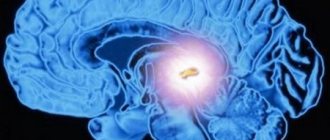Stress is a biological response to difficult situations. This causes the body to release hormones such as cortisol and adrenaline. Stress hormones help prepare the body for action by increasing the heart rate and breathing rate, creating a heightened state of alertness or arousal. This response to certain situations is designed to protect you from threats from predators, whether physical or psychological.
But how can you lower your cortisol levels if you have chronic stress? Obviously, reduce the number of stressful situations, and for faster and more effective recovery, contact us at Altimed MC.
What is cortisol?
Cortisol is the primary stress hormone that is released by the adrenal cortex whenever you experience stress. If you are chronically stressed, your body constantly releases the hormone. Chronically high cortisol is very detrimental to your cognitive and physical health, as well as your well-being. However, in the short term, the release of cortisol is very beneficial and serves as a form of protection for your body.
Chronically elevated cortisol levels are especially dangerous for your brain. In such cases, the hormone damages areas in the hippocampus, the part of the brain responsible for learning and memory.
Elevated cortisol levels have been shown to also lead to sleep problems and noticeably poorer sleep quality. This is because too much cortisol prevents you from falling asleep in the evening, and at night leads to a situation where you are in a constant state of alertness.
↑ Classification
Stress is a condition in which the adrenal glands are activated. This reaction could be:
- Positive. In this case, it is called eustress. An unexpected reason for joy appears, for example, as a result of meeting an old friend or after receiving an unexpected gift. The release of stress hormones is also observed during competitions in athletes, when they feel a thirst for victory. Such reactions do not have a negative impact on health. On the contrary, it was in a state of eustress that people accomplished most of their feats and significant discoveries.
- Negative. This is already distress. This reaction can be harmful to your health.
Distress, in turn, is divided into:
- Neuropsychic. It can be informational and psycho-emotional. In the first case, the cause is excess information. Typical for people who constantly work with large amounts of data. In the second case, the state is provoked by strong anger, hatred, and resentment.
- Physical. It can be temperature, food, pain, color. The temperature response is formed as a response to exposure to extremely low or high temperatures. A food reaction is observed during hunger or forced consumption of foods that a person does not like. Pain distress is a response to injury, the sensation of pain. Light is formed if a person has to stay in an illuminated room for a long time, for example, in polar day conditions.
Effect of cortisol on the body
to overestimate the functions of cortisol ; it takes an active effect in metabolic processes in the body. The hormone enhances the effects of adrenaline and norepinephrine, which allows a person to independently cope with a stressful situation without medication.
Cortisol had an anti-inflammatory effect and regulates the production of amino acids and their uptake by skeletal muscle tissue. The stress hormone is responsible for the process:
- protein management (it enhances catabolism and is involved in the process of protein breakdown);
- carbohydrate metabolism in the body;
- fat metabolism;
- water-electrolyte metabolism.
In addition to these properties, the effect of cortisol on the body is observed in other processes. So, its normal level is:
- pronounced anti-inflammatory effect;
- strengthening the body's protective functions;
- increased blood pressure;
- increased secretion of stomach acid;
- release of calcium from bone tissue.
Cortisol reduces the body's resistance. It is very important for the body and in case of severe deficiency, immediate elimination of the imbalance is required.
Vasopressin
Vasopressin is another peptide hormone of the hypothalamus.
Vasopressin is also called antidiuretic hormone - it regulates water balance in the body: it reduces the reabsorption of water by the kidneys and retains fluid in the body. Vasopressin contracts vascular smooth muscle and may increase blood pressure. A decrease in the secretion of vasopressin can cause diabetes insipidus, a disease in which the patient produces a huge amount of fluid (more than 6 liters per day) and constant thirst. Vasopressin plays the role of a neuropeptide and acts on brain cells. It influences social behavior. Thus, a variant of the vasopressin receptor gene AVPR1A is associated with the likelihood of happy family relationships in men - this conclusion was made by comparing genotyping data and survey results. Experiments were conducted on mice that showed that stimulation of vasopressin receptors makes males more attached to their females - they preferred to spend more time with a familiar partner, even if they had previously been polygamous. Here it should be noted that in animals, social monogamy has nothing to do with sexual monogamy - we are talking about attachment to a partner, and not about the complete absence of “extramarital” relationships. In humans, the action of vasopressin as a neuropeptide is not so straightforward.
Oxytocin and vasopressin are paralogues: substances that were created by doubling the DNA sequence and are very similar to each other. Vasopressin begins to be synthesized in the fetus from the 11th week of pregnancy, oxytocin - from the 14th week, and both continue to participate in the development of the infant in the postnatal period. High levels of vasopressin receptor expression during the neonatal period may lead to increased aggression in adults.
While oxytocin levels can vary greatly depending on the situation, vasopressin is a hormone with a smaller range of changes, the level of which is mainly influenced by genetics. The formation of social behavior and stable (or not so stable) connections between partners depends on the activity of vasopressin receptors and their genetic variant. These receptors are also involved in the development of long-term memory and influence the plasticity of cortical neurons.
What is adrenaline?
Adrenaline is a substance that is produced in the adrenal medulla, as well as in some neurons of the central nervous system. Within a few minutes during a stressful situation, adrenaline is quickly released into the blood, sending impulses to the organs to create a specific reaction.
Adrenaline is usually released when we are in a stressful situation; it is said to govern our fight-or-flight conditions. When we encounter a situation that causes us stress, this hormone rushes to certain parts of our body, causing us to react, this is called the release of adrenaline. For example, a dry throat during public speaking or a rapid heartbeat in a frightening situation are all due to the release of the hormone adrenaline. As stress gradually subsides, its effects are neutralized by norepinephrine, a body hormone.
Melatonin
Let's end today's story on a happy note - let's go to bed.
Melatonin, a sleep hormone, is produced by the pineal gland in the brain when it gets dark (which is why shining a smartphone screen into your eyes before bed is a bad idea). It regulates the “internal clock” - circadian rhythms - and helps all body systems go into rest mode. During the day, the highest levels of melatonin occur between midnight and 5 a.m. during daylight hours; throughout the year, melatonin levels increase in winter. In the body, melatonin is preceded by the amino acid tryptophan, which also plays the role of a precursor to serotonin. Melatonin slows down aging and reproductive functions and increases serotonin levels. The interaction of melatonin with the immune system plays a special role - the hormone’s action reduces inflammation. Melatonin has an antioxidant effect and protects DNA from damage.
Thanks to melatonin, the daily routine is restored after a change in time zone or night work. Decreased melatonin production—for example, due to bright light or changes in daily routine—can cause insomnia, which increases the risk of depression. To help your body get a good night's sleep and regain its routine, try sleeping in the dark—with the lights off and the curtains drawn if you have to sleep during the day.
Life in a big city sometimes consists entirely of stress, chronic lack of sleep, traffic jams, delays, meaningless work meetings and tasks of exaggerated importance and urgency. In such a rhythm, it is very difficult to find time to recover, so we simply begin to take the state of chronic fatigue for granted. But nature did not prepare us for this, and the same cortisol will not be released forever: if you are constantly under stress, cortisol is depleted over time - and then the body is forced to respond to stress in other ways.
To make sure your health matches your stress load, consult with your endocrinologist: your body may need support. And I definitely need rest.
What is adrenaline stress
Adrenaline release occurs at the moment of maximum tension. It is noteworthy that this process can be triggered by both ordinary viewing of a horror film and serious stressful situations. An excess of stress hormones negatively affects the general condition of the body and can lead to the development of chronic stress.
Adrenaline stress to a state in which the maximum release of a hormone occurs under the influence of any situation. At this moment, a person’s strength doubles, and he is able to solve a problem of any complexity. But if adrenaline during stress is the norm, then its excess in a calm state is a real danger to the body. A person may develop the following pathologies:
- high blood pressure;
- severe headaches;
- nausea;
- sleep problems.
In its classic form, the stress hormone adrenaline enhances the body's protective functions. But an abnormal excess can cause diseases of the cardiovascular system. Increased levels of adrenaline lead to the accumulation of fat and sugar in the blood, which leads to excessive weight gain.
In some cases, a person develops adrenaline addiction, and as it develops, the following occurs:
- increased heart rate;
- rapid breathing;
- dilated pupils;
- increase in pressure.
Regularly experiencing adrenaline stress is dangerous to your health!
Overall, cortisol and adrenaline perform many important tasks in the body. For example, in stressful situations they prepare you to be at the top of your game. Hormones also help the brain use glucose as an energy source. In short, cortisol improves your performance. When you need to perform well in a difficult situation, the stress hormones norepinephrine and adrenaline are first quickly released. This is followed by a release of cortisol. The combination of these hormones increases heart rate, blood pressure, and has many other effects. Essentially, cortisol activates you in challenging situations. Read on to learn how to lower cortisol.
Oxytocin
This is an oligopeptide hormone - it consists of several amino acids.
It is synthesized by the hypothalamus region of the brain, then it is secreted in the pituitary gland. In women, oxytocin is released during childbirth - it promotes contractions of the uterus during the first and second stages of contractions. A synthetic version of the hormone is even used to induce labor. Oxytocin reduces sensitivity to pain. In the postpartum period, under the influence of the hormone, bleeding stops and ruptures heal. The level of oxytocin increases many times during lactation - here the hormone acts together with prolactin. The activity of oxytocin receptors is also regulated by estrogen receptors.
In both women and men, oxytocin plays an important role in sexual arousal. The level of oxytocin is increased by hugs (any kind - not necessarily with sexual overtones), sex and orgasm. Oxytocin is considered the bonding hormone - it creates a feeling of trust and calm around a partner. Although, to the same extent, oxytocin can be called the hormone of carelessness: it reduces the perception of alarm and fear signals (but does not in any way affect the causes of such signals).
Oxytocin is a well-known stress fighter: it blocks the release of adrenocorticotropic hormone (ACTH) and, as a result, cortisol (it is ACTH that gives the signal to produce cortisol). Therefore, under the influence of oxytocin, a person feels safe and opens up to the world. The functioning of oxytocin receptors determines how much each of us is able to experience empathy. People with a less active variant of the OXTR gene will have a more difficult time understanding the feelings of others and sharing experiences. Research suggests that this mechanism plays a role in the development of autism.
With the participation of oxytocin, a rather ancient mechanism for the formation of social bonds in animals is carried out - this is associated with the upbringing of offspring and the need to protect the mother during this period. The main role of oxytocin is in the formation of a mutual bond between mother and child and between partners. Based on his relationship with his mother or any other person who cares for him, the child develops ideas about himself and his personality. The knowledge and experience gained help predict the consequences of actions and form a picture of the world. Oxytocin is also involved in learning.
When should you contact Altimed MC?
It is necessary to seek qualified help when characteristic symptoms appear. The main signs of elevated cortisol :
- Rapid weight gain, mainly on the face, chest and abdomen.
- Flushed and round face.
- High blood pressure.
- Osteoporosis.
- Skin changes (such as bruising and purple stretch marks).
- Muscle weakness.
- Anxiety, depression or irritability.
- Increased thirst and frequent urination.
You may also experience increased body hair growth or trouble sleeping (as cortisol affects the body's sleep-wake cycle). Elevated stress hormones in women can include decreased sex drive and menstrual irregularities.
If you have elevated cortisol symptoms , which are described above, contact us at the Altimed Medical Center.
Diagnostics and treatment of stress hormones at Altimed MC
To find out what caused the increase in hormones, it is necessary to undergo a complete diagnosis of the body. This can be done quickly and painlessly here at Altimed MC. We use our own equipment for a complete diagnosis of the body.
Functional screening helps measure stress-related cortisol levels , as well as vitamin and mineral levels. With its help, you can get a complete picture of the functioning of the entire organism.
ATM Vega Test reveals hidden diseases, helps determine their severity and understand what caused them. Based on the results obtained, our specialists can create an effective treatment plan, the results of which you will notice in the first days.
Prevention of stress conditions
To prevent acute stress from causing harm to the body, its occurrence and development should be prevented. Preventative measures for stress may include the following:
- Systematic physical exercises. To develop the respiratory system, it is recommended to attend dancing, swimming, and running in the morning.
- Balanced diet. It is necessary to balance the diet, introduce foods rich in vitamins and microelements into the menu.
- Follow the correct daily routine, close to the natural biorhythms of a person. Try to go to bed no later than midnight.
- Meditation. This will help the body restore lost strength and energy. You should devote an hour a day to meditation. Pleasant music will help you recover.
Medicines should only be prescribed by a doctor; self-medication is not recommended.
How are stress hormones treated at Altimed MC?
The process of reducing cortisol takes time and a comprehensive approach. Our specialists will prepare a course for you, after which you will be able to restore the normal level of cortisol in the body and thereby get rid of many discomforts (excess weight, sleep problems, and others).
To reduce stress, we recommend taking a course of treatment using our ATM TR device for transcranial magnetic stimulation. Frequency-wave processes affect the body, establish synchronization of all organs so that they work in their own rhythm. A device for electromagnetic (PEMF) therapy at home ATM Helper ML helps restore the level of stress hormones in the human body. The main thing is that you can use it in the future if you find yourself in stressful situations. Also, it has a wide range of actions and is no less effective in curing many other diseases. You will be told about this in more detail during your consultation.
Safe standards
To understand how much stress affects a person’s life, you can use a special scale of stressful situations. The maximum number of points that can be safely scored on this scale is 150. If it is higher, you can get sick. For example, according to this scale, the death of a spouse is valued at 100 points, moving to a new apartment - 20 points, problems with management - 22 points.
To reduce the negative impact of stress and maintain your health, you should resort to fairly simple recommendations. First of all, this is a revision of lifestyle and nutrition. In addition, there are psychotherapeutic methods, relaxation techniques (SPA treatments, yoga, massage, breathing exercises). In especially difficult situations, you should not neglect drug therapy: nootropic drugs, antidepressants, tranquilizers, vitamins.










